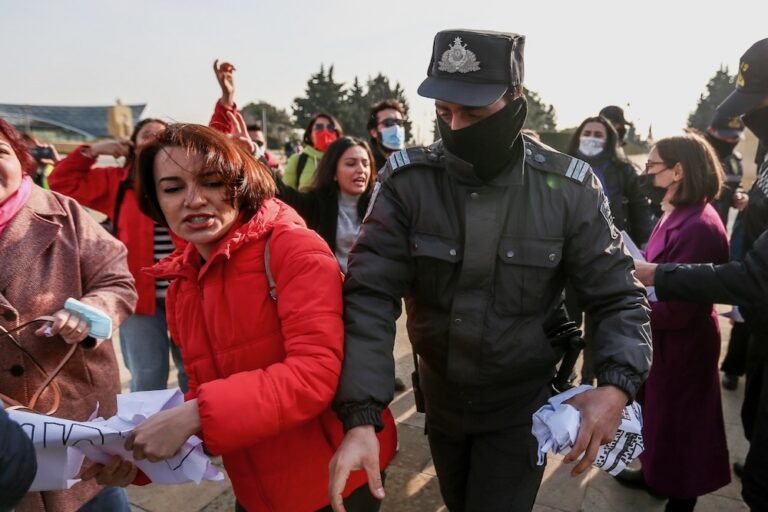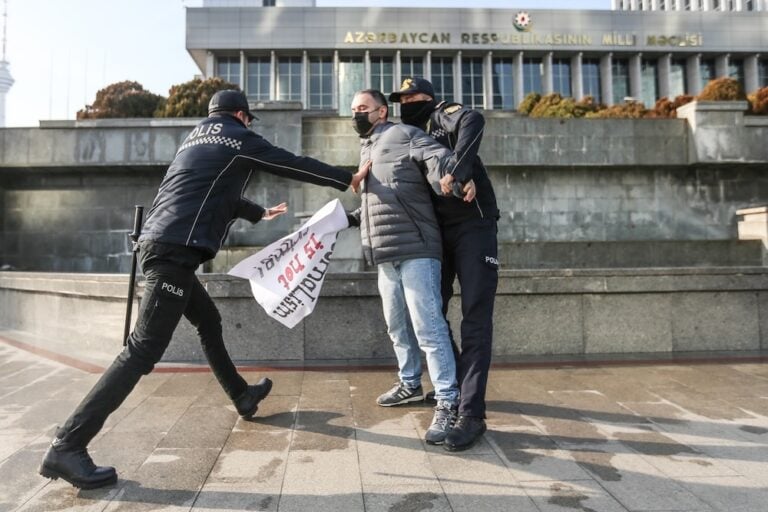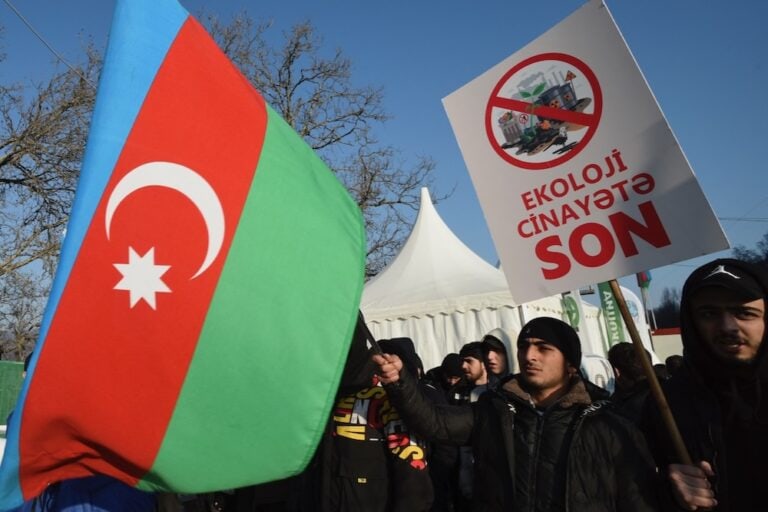(RSF/IFEX) – The following is a 16 October 2008 RSF press release: Monitoring shows state media failed to cover election campaign properly The public media provided hardly any coverage of the campaign for yesterday’s presidential election, Reporters Without Borders said at a news conference in Baku on 14 October, when it announced the findings of […]
(RSF/IFEX) – The following is a 16 October 2008 RSF press release:
Monitoring shows state media failed to cover election campaign properly
The public media provided hardly any coverage of the campaign for yesterday’s presidential election, Reporters Without Borders said at a news conference in Baku on 14 October, when it announced the findings of its four-week monitoring of the campaign coverage. The monitoring was part of a comprehensive “Media pluralism in the electoral period” project that is co-financed by the European Commission.
The public media monitored by Reporters Without Borders did not analyse the candidates’ programmes and did not organise any substantive, constructive debates. At the same time, they gave President Ilham Aliev, who was running for re-election, a massive amount of coverage, and therefore publicity.
The print media caused the most concern. The only political actors mentioned in the state print media were President Aliev, the Central Electoral Commission (CEC), the late President Heydar Aliev (the current president’s father) and the foundation that bear’s the late president’s name. As regards the elections, the state media focused on the preparations and operational aspects, neglecting the candidates and any possibility of debate.
“We regret that the campaign was completely absent from the state media,” Reporters Without Borders said. “The excessive space given to the government must have had an impact on how the electorate voted. It is deplorable that voters did not have access to real substantive debates among the candidates or to adequate reporting on the campaign, in order to be able to make an informed choice.”
TV stations
The state television broadcaster AzTV, which was not allowed to provide free-access programmes, had minimal election coverage. The amount of air time it allocated to candidates in its news programmes ranged from 0.01 to 0.08 per cent, while the CEC was given 4.46 per cent. Its news coverage was dominated by President Aliev, who filled 44.14 per cent of its air time, while the Heydar Aliev Foundation got 13.28 per cent and Parliament got 3.30 per cent of the coverage. Substantial air time shares were also accorded to infrastructural development (26.09 per cent) and culture (18.84 per cent). The organisation of the elections and diplomatic activities got 9.42 per cent.
ITV, the other main public TV broadcaster, complied with a requirement to provide free-access time to the candidates. The amount of air time allocated to candidates in its news coverage ranged from 0.10 to 0.42 per cent (slightly fairer and more generous that AzTV). Its allocation to other political actors was much the same as that of the other broadcasters: foreign countries (12.73 per cent), CEC (6.88 per cent) and government ministries (5.18 per cent). Nearly half of its reporting (49.32 per cent) was not about any political actor.
Radio stations
Both of the state radio broadcasters, IR and AzR, gave the candidates some coverage in their news programmes but it was minimal. Both covered a range of subjects including human rights, inter-ethnic relations, anti-corruption measures, economic reforms and security issues. And both covered the standard range of political actors, paying most attention to government ministries (15.97 and 19.44 per cent respectively). IR gave 12.25 per cent to foreign countries and 11.27 to the CEC. AzR allocated 25.88 per cent of its air time to the president.
Print media
The state print media caused the most concern. The space accorded to the election was minimal, and was restricted to that offered to the candidates free of charge. The president was omnipresent, both in photos and text, taking up to 62.49 per cent of space in Bakinskii Rabochii, 56.89 per cent in Respublika, 57.12 per cent in Azerbaijan and 55 per cent in Halq. The late President Aliev and his foundation, Parliament, the CEC and government ministers occupied most of the rest.
For the full report, click here: http://www.rsf.org/article.php3?id_article=28973


